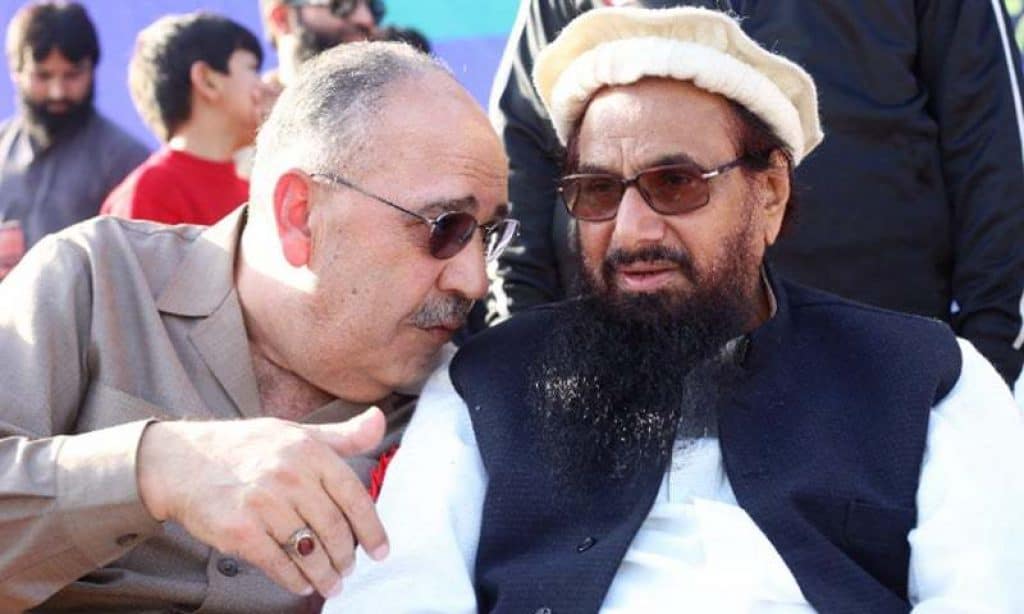
The Resistance Front, a cover organization of the Pakistan-supported Lashkar-e-Taiba terror group, claimed credit for the April 22 attack in the Indian union territory of Jammu and Kashmir that killed 26 tourists. The men who carried out the attack crossed the border from Pakistan, according to Indian officials.
The terrorists targeted tourists as they emerged from a forest near the town of Pahalgam, The Hindu reported. The gunmen are reported to have “checked the identity of victims before shooting them at close range” in an effort to target Hindus and spare Muslims, according to witnesses.
Upwards of six gunmen are believed to have carried out the attack. Indian officials said that two Kashmiri men traveled to Pakistan in 2018, and they and three Pakistani men “infiltrated” the union territory to murder the Indian tourists.
The attack in Jammu and Kashmir is the largest in India since November 26, 2008, when a Lashkar-e-Taiba (LeT) suicide assault team fanned out across Mumbai and targeted multiple locations, including a theater, a train station, hotels, and a Jewish center, killing 164 people. The attack lasted for three days. Indian intelligence traced phone calls from the terrorists back to handlers in Pakistan as the assault was ongoing. The handlers directed the terrorists to execute non-Muslims, often brutally, and laughed when their instructions were carried out. After the attack, Interpol issued arrest warrants for two serving senior Pakistan Army officers and a retired major.
LeT has launched a number of terror attacks in India and Afghanistan over the years, including the December 13, 2001, assault on India’s Parliament House in New Delhi and the attack on the Indian Consulate in Herat, Afghanistan, on May 23, 2014.
A front for Laskhar-e-Taiba
The Resistance Front is an “offshoot of Lashkar-e-Taiba” that was formed in August 2019 after India removed the special autonomous status of Jammu and Kashmir and began directly governing the region, according to the South Asia Terrorism Portal, which tracks terror groups in the region. Three of the group’s leaders—Sajid Jatt, Sajjad Gul, and Salim Rehmani—are “associated with” LeT.
LeT is known to use front groups to cover its activities in India. An organization known as the Indian Mujahideen, which is a US-designated Foreign Terrorist Organization, serves as a front for both LeT and the allied Harakat-ul-Jihad-al-Islami. LeT has established other fronts, such as the Milli Muslim League (MML) and Tehreek-e-Azadi-e Kashmir (TAJK), to support its activities in India.
Lashkar-e-Taiba, Pakistan’s premier terror proxy
LeT was founded in 1987 by Hafiz Saeed, its current leader, along with Al Qaeda founder Osama bin Laden and Abdullah Azzam, who is considered the godfather of international jihad. Bin Laden helped LeT establish training camps in Afghanistan’s provinces of Kunar and Paktia. LeT shares Al Qaeda’s goal of establishing an Islamic state in South Asia and beyond.
The Pakistani state, which rejects India’s claim to Jammu and Kashmir and has created or supported a legion of terror groups to battle India, allows LeT to operate openly inside Pakistan. LeT has offices throughout the country, and its leaders and members operate unfettered.
Markaz-e-Taiba, LeT’s headquarters in Muridke near Lahore, is a sprawling complex used to indoctrinate future jihadists before they are sent off for military training. The provincial government of Punjab has financed Markaz-e-Taiba in the past.
Pakistan has claimed to have cracked down on LeT in the past and has put Saeed under house arrest several times, only to ease restrictions once international pressure waned.
LeT is listed by the US as a Foreign Terrorist Organization, and Saeed is listed by the US as a Specially Designated Global Terrorist. Despite these statuses, LeT and Saeed are feted by Pakistani military commanders and politicians. In the past, Saeed routine appeared on Pakistani television.
Regardless of LeT’s overt ties to Al Qaeda and other jihadist groups and its terror campaign in India and Afghanistan, the Pakistani government refuses to crack down on it and other Pakistan-based and supported terror groups.







